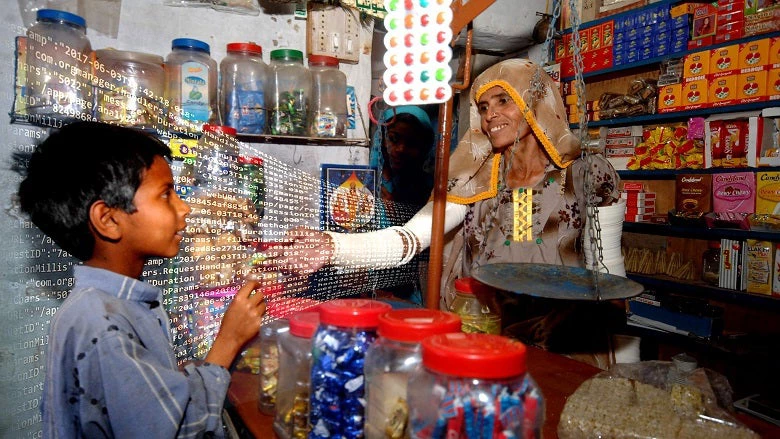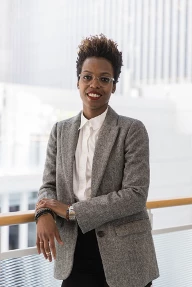Blockchain is the subject of considerable hype, thanks largely to the rise (and fall and rise...) of high profile digital currencies. Beyond this spotlight, development experts and innovators are exploring whether the technology behind cryptocurrencies can be leveraged to advance gender equality.
Blockchain is a distributed ledger technology that facilitates peer-to-peer transactions without using an intermediary. (The technology is also notoriously difficult to follow, but we find this brief video helpful and this talk explains blockchain well, if you have a bit more time.) Put simply, the system is maintained by collaboration, code and sometimes competition. Many experts refer to Google Docs to explain the concept: multiple users can access the same document simultaneously and they can all see the changes. This feature potentially makes it suited for validating records and processing financial transactions in the absence of strong institutions.
UN Women is working with Innovation Norway to see how blockchain could support women and girls as a part of the UN’s humanitarian response. Between January 29 and February 1, they brought seven companies to New York to showcase their technological solutions in a live simulation. During the event, providers presented a few ways in which their blockchain solutions could offer more advanced identification and financial services for refugees.
IDbox was among the innovations showcased. The solar-powered device uses blockchain to create a unique digital identity and wallet in the absence of internet or electricity using only a 2G mobile phone. It was first tested in Papua New Guinea, where more than 80 percent of the population lacks a bank account, and many remain without electricity or formal identification. Built by Julien Bouteloup and supported by the Bank of Papua New Guinea, Abt Associates and the Australian government, advocates hope it can establish a pathway for financial inclusion, energy trading, access to health services, and even voting.
And in East Africa, SPENN by Blockbonds offers a digital wallet that allows users to receive, save, transfer and spend money. Its unique distribution network allows users to interact with each other to offer goods and services, providing an income-generating opportunity. If selected for use in UN refugee camps, the team hopes to improve safety by reducing the need for physical cash and to promote women’s control over their funds, all while stimulating the camp’s financial ecosystem.
While these solutions were not developed with the end goal of addressing gaps between women and men, the services they provide may offer displaced women more autonomy and economic opportunity. Women in countries with humanitarian crises are 30 percent less likely than men to have an individual financial account. Having a safe place to save and store humanitarian cash transfers and remittances is a key strategy for coping with shocks and building resilience.
Rather than using blockchain to replace traditional institutions, the UN sees this new technology as a means of streamlining its support after catastrophes and conflict.
Following the New York event, selected firms will be invited to submit full proposals to the UN to pilot their solutions in the field.
The technology’s application for development is still in its infancy, and it remains to be seen exactly how much disruption to gender inequality can be found in lines of code. The hard and slow work of shifting norms, changing attitudes and reducing biases cannot be overstated. But what is starting to emerge is a clearer picture of the supporting role that blockchain could play.
Meanwhile, the World Bank Group is working with clients to explore solutions for supply chain management, land registration and identification. One of our teams also examines the legal and policy dimensions of the technology. In Vietnam, a pilot is testing the ways in which blockchain could help women entrepreneurs to prove ownership of business assets, verify production values, and establish a digital identity. The hope is that this kind of information can serve as a form of collateral and boost their access to finance. Details about their next workshop can be found here.




Join the Conversation